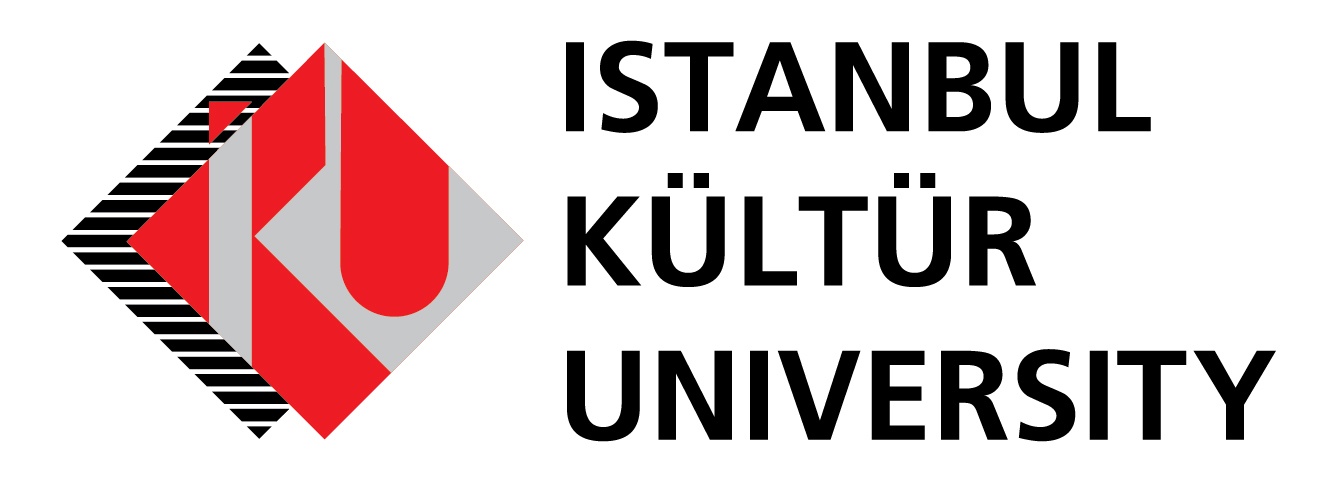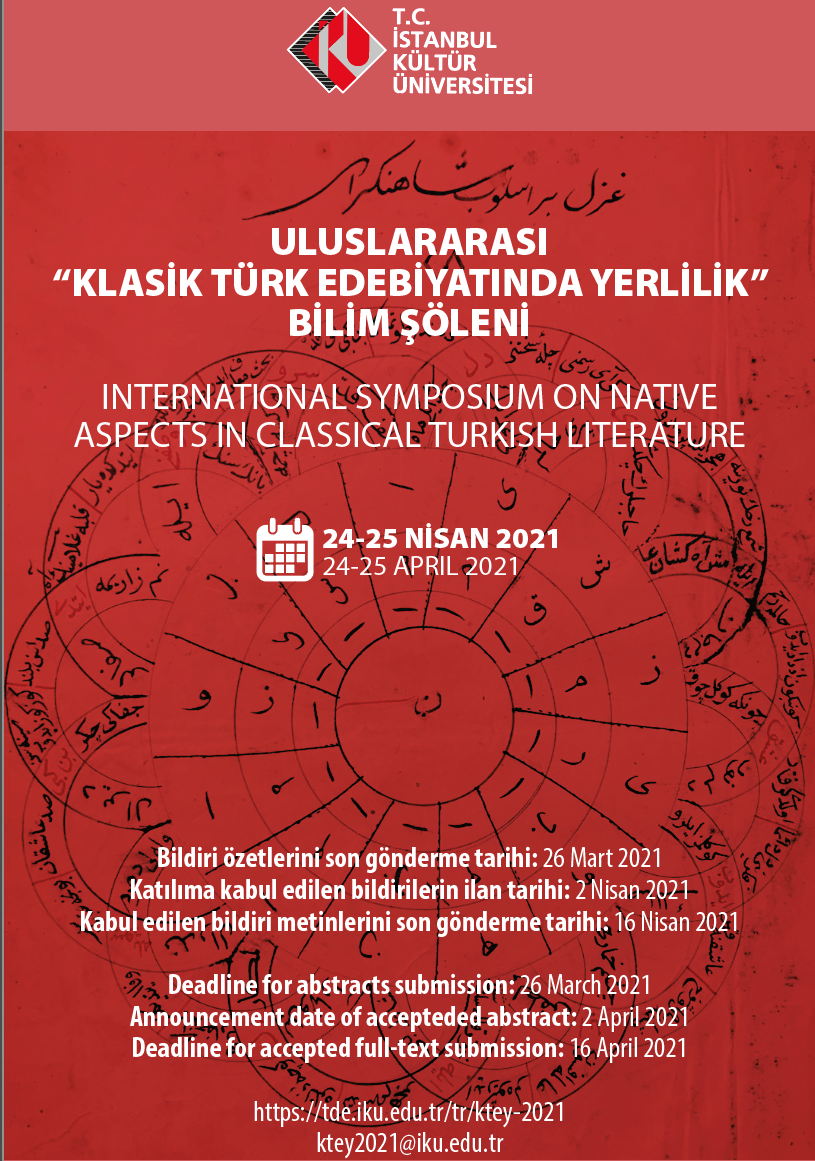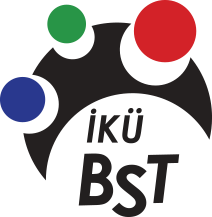KTEY 2021
Important Dates
| Sypmosium Dates | 24-25 April 2021 |
| Deadline | 26 March 2021 |
| Deadline for Abstract Submission | 26 March 2021 |
| Notification of Acceptance | 2 April 2021 |
| Deadline for Full Text Submission | 16 April 2021 |
With the International Symposium on The Indigenous in Classical Turkish Literature, it is aimed to make a systematic inventory of this subject by evaluating and publishing the studies aimed at identifying all kinds of “indigenous” elements seen in texts within the framework of classical Turkish literature.
While the matter of the “indigenous” is very important in classical Turkish literature, it has not been sufficiently emphasized until today.
In Classical Turkish Literature, what is meant by the term “indigenous” in the title of the symposium is everything that is not transferred to classical Turkish literature from Persian and/or Arab literatures, and is produced by Turkish poets and writers, being "unique to us". From the language used to the names of persons and places mentioned in the texts, from events to objects, from the contents of the work to literary genre and verse forms, all domestic and national characteristics are expected to be highlighted within the framework of this scientific symposium.
The main language of the symposium is Turkish. Presentations also can be made in English, Russian, Arabic and Persian languages. Participants who wish to make their presentations in these languages are required to send full abstracts in Turkish along with the full text of their papers.
The symposium will be held online. You will be informed about how to participate on our website.
Applications are made by filling out and sending the participation form on our website. Submitted abstracts are sent to two of the professors in the Scientific Committee who are qualified in that subject. The authors of the abstracts whose presentations are deemed appropriate will be announced on our website between the announcement dates.
There is no fee for participation
Page Layout
1. The articles should be written in Microsoft Word software and the page layout should be regulated as the following:
| Paper Size | A4 Portrait |
| Top Margin | 3 cm |
| Bottom Margin | 2.5 cm |
| Left Margin | 2.5 cm |
| Right Margin | 2.5 cm |
| Paragraph indentation | 0.5 cm |
| Block Quotation from right and left sides | 3.5 cm |
| Typefont | Times New Roman |
| Font Style | Normal |
| Font size | 12 punto |
| Footnote | 10 punto |
| Verse quotation | 2 cm indent from the left |
| Footnote text size | 10 punto |
| Paragraph Break | 6 nk (after) |
| Row Pitch | 1,15 |
| Text must be justified. | |
2. Details such as page number, header and footer should not be included in the articles.
Abstract section should be Times New Roman, font style is normal, font size is 10 pt, the first line should be indented 0.75 cm and right margin and left margin indents should be 1 cm. The Turkish and English abstract chapters should be included a Turkish and English abstract between 150-250 words and Turkish and English keywords of 3-5 words together with the title.
3. Sub-headings can be used to provide clarity and cohesion. Main titles (main section, sources, and appendices) should be capitalized; sub-headings should be written in bold and capital letters only.
4. In terms of spelling and punctuation, except for special cases required by the article or the subject, The Spelling Guide of the Turkish Language Institution should be taken as the basis.
CITATION AND BIBLIOGRAPHY GUIDE
The APA citation manual should be used in the papers that will be sent to "the International Symposium on Native Aspect in Classicial Turkish Literature”. For this reason, the articles to be sent should conform to the citation guidelines shown below.
GENERAL RULES
1. A period is put between each independent information that comes after the date in all work tag (book, thesis, article, paper, etc.) shown in the bibliography. Comma is used only after the surname of the author: Orkun, Hüseyin Namık (1986). Eski Türk Yazıtları. Ankara: Türk Dil Kurumu Yayınları.
2. Footnotes can also be used in cases where explanations are required in the text.
3. If a reference is to be made in the footnote, the citation system within the text is also applied: “For the main studies on this subject, see. (Ünver 1986; Timurtaş, 1994)”
4. If the name of the author is mentioned in the text, the name of the author should not be repeated: “Hence, Bahattin Ögel (1991: 118) has notable findings on this.”
5. Translator (çev.), dedicator (tsh.), prepared by (haz.) etc. In these cases, when writing these names, a period should be put after the name of the work and the name of the person should be given with the relevant abbreviation in parentheses.
1. Citation from a book
For single author books:
In text: (Timurtaş, 1972: 78)
In bibliography: Timurtaş, Faruk Kadri (1972). Yunus Emre Divanı. İstanbul: Tercüman Yayınları.
For books with two authors:
In text: (Ercilasun ve Akkoyunlu, 2014: 102)
In bibliography: Ercilasun, Ahmet Bican-Ziyat Akkoyunlu (2014). Dîvânü Lügâti’t-Türk – Kâşgarlı Mahmut. Ankara: Türk Dil Kurumu Yayınları.
For books with more than two authors:
In text: (Argunşah, vd., 2010: 105)
In bibliography: Argunşah, Mustafa-Sağol Yüksekkaya, Gülden-Tabaklar, Özcan (2010). Karahanlıca Harezmce Kıpçakça Dersleri. İstanbul: Kesit Yayınları.
2. Citation from an article
In text: (Köprülü, 1933: 278)
In bibliography: Köprülü, M. Fuat (1933). “Anadolu’da Türk Dil ve Edebiyatının Tekâmülüne Umumî Bir Bakış”. Yeni Türk Mecmuası, I. IV, p. 277-282.
3. Citation from a paper
In text: (Arat, 1960: 227)
In bibliography: Arat, Reşit Rahmeti (1960). “Anadolu Yazı Dilinin Tarihî İnkişâfına Dair”. V. Türk Tarih Kongresi 1956. Ankara: p. 225-232.
4.Citation from a book chapter
In text: (Ceylan, 2002: 892)
In bibliography: Ceylan, Ömür (2002). “Edebî Geleneğimiz İçerisinde Tasavvufî Şiir Şerhleri”. Türkler. Editör: Hasan Celâl Güzel vd., C. 5. Ankara: Yeni Türkiye Yayınları. p. 891-5.
5.Citation from a thesis/dissertation
In text: (Akar, 1980: 215)
In bibliography: Akar, Metin (1980). Türk Edebiyatında Manzum Mirâçnâmeler. Doctoral Thesis. Ankara: Hacettepe University Enstitute of Social Sciences.
6.Citation from an encyclopedia article
In text: (Akün, 2002: 12)
In bibliography: Akün, Ömer Faruk (2002). “Kâşgarlı Mahmut”. TDV İslâm Ansiklopedisi. C. 25. Ankara: Türkiye Diyanet Vakfı Yayınları. p. 9-15.
7. Citation from a codex
In text: (Dervîş Hayâlî yz.: 62a)
In bibliography: Dervîş Hayâlî (yz.). Ravzatü’l-envâr. Süleymaniye Kütüphanesi. Fatih Bölümü. Nu: 2633.
8. Citation from a newspaper
In text: (Şavkay: 20.01.2000)
In bibliography: Şavkay, Tuğrul (20.01.2000). “Türkçe Üzerine”. Hürriyet: 20 January 2000.
For a newspaper source without an author
In text: (Milliyet: 06.11.2020)
In bibliography: Milliyet (06.11.2020). Üniversitelerin Performansı Açıklandı.
9.Citation from an archival database
In text: (HR. HMŞ. İŞO. 101/79).
In bibliography: The Ottoman Empire Archive of the Department of State Archives. Publishing of Some Official Documents in Journal of Diplomatic Archive.
Note: Footnote system can be used only for indicating the archive sources.
10. Citation from an electronic source
-Citation from an e-book whose publication date and page numbers are registered
In text: (İpekten vd., 2017: 203
In bibliography: İpekten, Haluk-Kut, Günay-İsen, Mustafa-Ayan, Hüseyin-Karabey Turgut (2017). Heşt Bihişt. Kültür ve Turizm Bakanlığı. e-kitap:
https://bit.ly/36VQB5g. (Access date: 09.11.2020)
-Citation from an encyclopedia whose publishing date is registered
In text: (Macit, 2013)
In bibliography: Macit, Muhsin (2013). “Fuzûlî”. Türk Edebiyatı İsimler Sözlüğü. http://teis.yesevi.edu.tr/madde-detay/fuzuli-mdbir (Date of Access: 09.11.2020).
-Citation from a website only
(If you refer to a website only, it is shown as a footnote in the text)
https://www.osmanliedebiyati.com/ (E.T.: 09.11.2020).
If the electronic source has an author, it is shown in the bibliography list; otherwise, it is shown under the electronic sources list.
Note: It is important to give a certain link for the source used rather than give the index of the website.
11. Citation from a verbal source
For verbal sources, the date of the collection and the name of the person from whom you made the collection should be shown. Name of the people from whom the collection made should be listed in the Verbal Sources list.
In text: (Aslan: 12.01.1983)
In bibliography: Aslan, Şeref (12.01.1983). Topic of the collection. Place of the collection (Village, Zone, City): Age of the source person
Aslan, Şeref (12.01.1983). Bir Masal (Akıl ile Devlet). Arpaçay Mah., Akçalar (Keçebörk) Köyü, Kars: 37.
Note: For verbal sources, the name of the person from whom the collection made and the date when the collection made have to be shown.
ORGANIZING COMMITTEE
- Prof. Dr. M. Fatih KÖKSAL (İstanbul Kültür Uni., Turkey)
- Prof. Dr. Vahit TÜRK (İstanbul Kültür Uni., Turkey)
- Prof. Dr. İskender PALA (İstanbul Kültür Uni., Turkey)
- Prof. Dr. Ömür CEYLAN (İzmir Katip Celebi Uni., Türkiye)
- Prof. Dr. Mehmet AÇA (Marmara Uni., Turkey)
- Prof. Dr. Muharrem KAYA (Mimar Sinan Fine Arts Uni., Turkey)
- Asst. Prof. Emre Berkan YENİ (İstanbul Kültür Uni., Turkey)
- Asst. Prof. İbrahim KOLUNSAĞ (İzmir Katip Çelebi Uni., Türkiye)
- Asst. Prof. Kayhan ŞAHAN (İstanbul Kültür Uni., Turkey)
- Asst. Prof. Mehmet TÜRKMEN (İstanbul Kültür Uni., Turkey)
- Asst. Prof. Negihan GÜR (Ankara Social Sciences Uni., Turkey)
- Asst. Prof. Onur HASDEDEOĞLU (Kastamonu Uni., Türkiye)
- Resource Assistan Dr. Yağız YALÇINKAYA (İstanbul Kültür Uni., Turkey)
- Resource Assistant İsa KOCAKAPLAN (İstanbul Kültür Uni., Turkey)
- Resource Assistant Harun COŞKUN (İstanbul Kültür Uni., Turkey)
- Resource Assistant. Çağla BARİKAN TOPCİ (İstanbul Kültür Uni., Turkey)
- Resource Assistant Güler UĞUR (İstanbul Kültür Uni., Turkey)
- Resource Assistant. Berna CİVALIOĞLU SEVİNDİK (İstanbul Kültür Uni., Turkey)
- SCIENCE BOARD
SCIENCE BOARD
- Prof. Dr. Abdullah EREN (Ordu Uni., Turkey)
- Prof. Dr. Ahmet Atilla ŞENTÜRK (İstinye Uni., Turkey)
- Prof. Dr. Ahmet KARTAL (Eskişehir Osmangazi Uni., Turkey)
- Prof. Dr. Ahmet TANYILDIZ (Diyarbakır Dicle Uni., Turkey)
- Prof. Dr. Ali İhsan ÖBEK (Trakya Uni., Turkey)
- Prof. Dr. Ali YILDIRIM (Fırat Uni., Turkey)
- Prof. Dr. Ayşe YILDIZ (Ankara Hacı Bayram Veli Uni., Turkey)
- Prof. Dr. Bahattin KAHRAMAN (Balıkesir Uni., Turkey)
- Prof. Dr. Bahir SELÇUK (Fırat Uni., Turkey)
- Prof. Dr. Bayram Ali KAYA (Sakarya Uni., Turkey)
- Prof. Dr. Bekir ÇINAR (Niğde Ömer Halisdemir Uni., Turkey)
- Prof. Dr. Benedek PERİ (Eötvös Lorand Uni., Hungary)
- Prof. Dr. Beyhan KESİK (Giresun Uni., Turkey)
- Prof. Dr. Cemal KURNAZ (Gazi Uni., Turkey)
- Prof. Dr. Edith G. AMBROS (University of Wien, Austria)
- Prof. Dr. Fatma Sabiha KUTLAR OĞUZ (Hacettepe Uni., Turkey)
- Prof. Dr. Filiz KILIÇ (Nevşehir Hacı Bektaş Veli Uni., Turkey)
- Prof. Dr. Gencay ZAVOTÇU (Kocaeli Uni., Turkey)
- Prof. Dr. Gülgün YAZICI (Çanakkale 18 Mart Uni., Turkey)
- Prof. Dr. Günay KUT (Boğaziçi Uni. Ret., Turkey)
- Prof. Dr. Hakan TAŞ (Marmara Uni., Turkey)
- Prof. Dr. Hakan YEKBAŞ (Sivas Cumhuriyet Uni., Turkey)
- Prof. Dr. Halil ÇELTİK (Gazi Uni., Turkey)
- Prof. Dr. Halil İbrahim YAKAR (Gaziantep Uni., Turkey)
- Prof. Dr. Haluk GÖKALP (Çukurova Uni., Turkey)
- Prof. Dr. Hanife Dilek BATİSLAM (Çukurova Uni., Turkey)
- Prof. Dr. Hanife KONCU (Marmara Uni., Turkey)
- Prof. Dr. Hasan ŞENER (Ankara Hacı Bayram Veli Uni., Turkey)
- Prof. Dr. Hatice AYNUR (İstanbul Şehir Uni., Turkey)
- Prof. Dr. Hatice Aynur (Yıldız Technical Uni., Turkey)
- Prof. Dr. İbrahim Çetin DERDİYOK (Çukurova Uni., Turkey)
- Prof. Dr. İbrahim Halil TUĞLUK (Adıyaman Uni., Turkey)
- Prof. Dr. İskender PALA (İstanbul Kültür Uni., Turkey)
- Prof. Dr. İsmail Hakkı AKSOYAK (Ankara Hacı Bayram Veli Uni., Turkey)
- Prof. Dr. Kaplan ÜSTÜNER (Harran Uni., Turkey)
- Prof. Dr. Kemal YAVUZ (Fatih Sultan Mehmet Vakıf Uni., Turkey)
- Prof. Dr. Layli ÜKÜBAYEVA (Manas Uni., Kyrgyzstan)
- Prof. Dr. Mahmut Esat HARMANCI (Kocaeli Uni., Turkey)
- Prof. Dr. Mahmut KAPLAN (Beykent Uni., Turkey)
- Prof. Dr. Mehmet Fatih KÖKSAL (İstanbul Kültür Uni., Turkey)
- Prof. Dr. Mehtap ERDOĞAN TAŞ (Sivas Cumhuriyet Uni., Turkey)
- Prof. Dr. Metin AKAR (İstanbul Aydın Uni., Turkey)
- Prof. Dr. Mücahit KAÇAR (İstanbul Uni., Turkey)
- Prof. Dr. Muhsin MACİT (Anadolu Uni., Turkey)
- Prof. Dr. Mustafa İSEN (Gazi Üni. Ret., Turkey)
- Prof. Dr. Müberra GÜRGENDERELİ (Trakya Uni., Turkey)
- Prof. Dr. Müjgan ÇAKIR (Mimar Sinan Fine Arts Uni., Turkey)
- Prof. Dr. Necip Fazıl DURU (Ordu Uni., Turkey)
- Prof. Dr. Nihat ÖZTOPRAK (Fatih Sultan Mehmet Vakıf Uni., Turkey)
- Prof. Dr. Orhan BİLGİN (İstanbul 29 Mayıs Uni., Turkey)
- Prof. Dr. Orhan Kemal TAVUKÇU (Recep Tayyip Erdoğan Uni., Turkey)
- Prof. Dr. Orhan KURTOĞLU (Ankara Hacı Bayram Veli Uni., Turkey)
- Prof. Dr. Osman HORATA (Hacettepe Uni., Turkey)
- Prof. Dr. Ozan YILMAZ (Sakarya Uni., Turkey)
- Prof. Dr. Ömer ZÜLFE (Marmara Uni., Turkey)
- Prof. Dr. Ömür CEYLAN (İzmir Katip Çelebi Uni., Turkey)
- Prof. Dr. Özer ŞENÖDEYİCİ (Hitit Uni., Turkey)
- Prof. Dr. Rıfat KÜTÜK (Atatürk Uni., Turkey)
- Prof. Dr. Saadet SHIYEVA (Azerbaijan Uni., Azerbaijan)
- Prof. Dr. Sadık YAZAR (İstanbul Medeniyet Uni., Turkey)
- Prof. Dr. Sebahat DENİZ (Marmara Uni., Turkey)
- Prof. Dr. Selami ECE (Atatürk Uni., Turkey)
- Prof. Dr. Selami TURAN (Süleyman Demirel Uni., Turkey)
- Prof. Dr. Semra TUNÇ (Selçuk Uni., Turkey)
- Prof. Dr. Sibel ÜST (Ankara Yıldırım Beyazıt Uni., Turkey)
- Prof. Dr. Süleyman SOLMAZ (Pamukkale Uni., Turkey)
- Prof. Dr. Şener DEMİREL (Fırat Uni., Turkey)
- Prof. Dr. Şevkiye KAZAN NAS (Akdeniz Uni., Turkey)
- Prof. Dr. Tuba Işınsu İSEN DURMUŞ (TOBB Economics ve Technology Uni., Turkey)
- Prof. Dr. Tuncay BÜLBÜL (Kütahya Dumlupınar Uni., Turkey)
- Prof. Dr. Üzeyir ASLAN (Marmara Uni., Turkey)
- Prof. Dr. Vusula MUSALI (Kastamonu Uni., Turkey)
- Prof. Dr. Yaşar AYDEMİR (Gazi Uni., Turkey)
- Prof. Dr. Yavuz BAYRAM (Ondokuz Mayıs Uni., Turkey)
- Prof. Dr. Ziya AVŞAR (Niğde Ömer Halisdemir Uni., Turkey)
| Sypmosium Dates | 24-25 April 2021 |
| Deadline | 26 March 2021 |
| Deadline for Abstract Submission | 26 March 2021 |
| Notification of Acceptance | 2 April 2021 |
| Deadline for Full Text Submission | 16 April 2021 |
Research Assistant Dr. Yağız YALÇINKAYA
Research Assistant Harun COŞKUN
Research Assistant Çağla Barikan TOPCİ
Research Assistant Güler UĞUR
Research Assistant Berna Civalıoğlu SEVİNDİK


